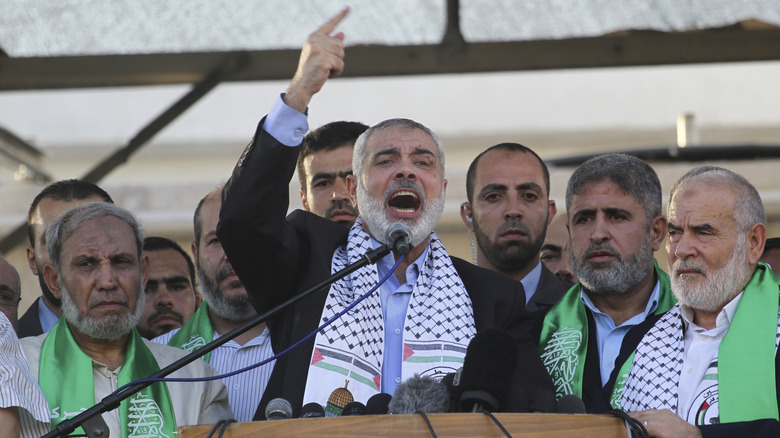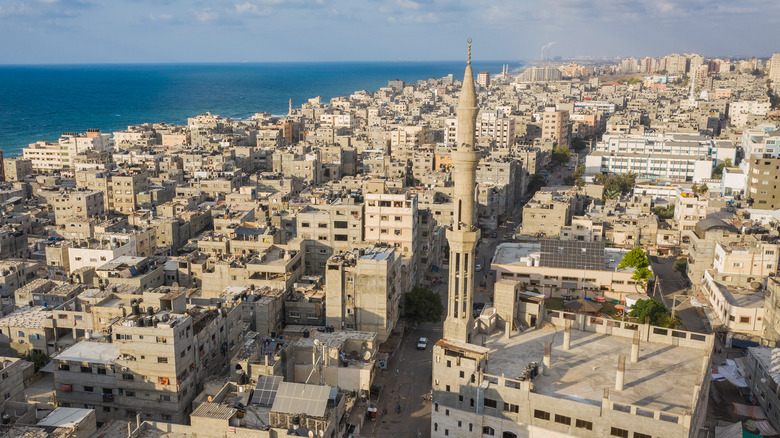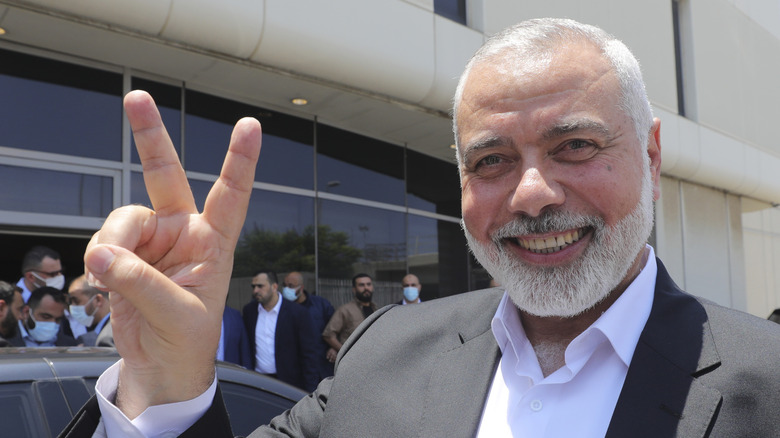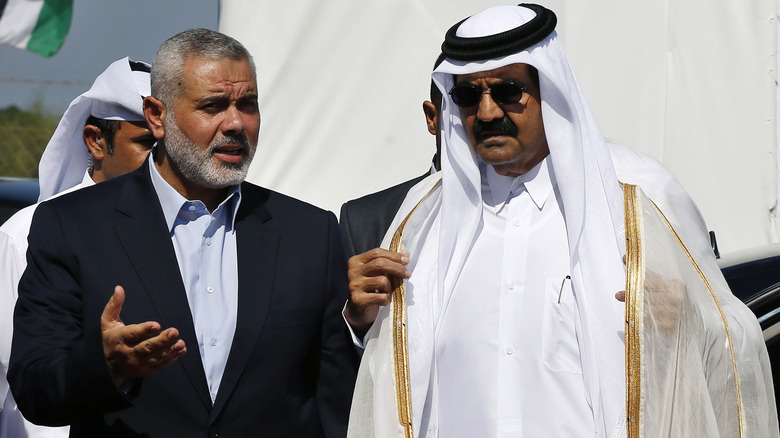Who Is Ismail Haniyeh, The Leader Of Hamas?
The man behind Hamas' worst-ever attack on Israel, Ismail Haniyeh, first came to power in Gaza in 2006, when the terrorist organization was elected to govern the Palestinian territory. Before that, he held a prominent role in the group due to his close relationship with Sheikh Ahmed Yassin. Notably, Yassin was a member of the Muslim Brotherhood — a hardline religiopolitical organization that believes Islamic law should be the foundation of society — and founder of the Islamic Organization, which evolved into Hamas in 1987.
Today, Gaza no longer has elections — the 2006 election was Gaza's first and last — but Haniyeh has nonetheless retained various positions of power ever since. In 2014, he briefly stepped down as prime minister when Hamas attempted to reconcile with their rivals, Fatah, who control the government of the Palestinian West Bank. In 2017, however, he was elected as chief of the group's political bureau. He was reelected to the same post in 2021.
Haniyeh became involved in the Hamas organization from a young age, having been radicalized at university after a childhood spent in a refugee camp. Even prior to the deadly 2023 attack on Israel, Haniyeh has been the subject of global outrage due to his links to the huge number of terrorist attacks regularly carried out in the region.
Youth and radicalization
As a child, Ismail Haniyeh's family was severely affected by the Israel-Palestine crisis. His parents were forced to flee their homes in the city of Asqalan when Israel was first established in 1948, fueling the Palestinian displacement. After that, Haniyeh was born in the infamous Al-Shati refugee camp in the Gaza Strip. According to the United Nations, the camp remains one of the most densely populated areas of the entire world, is rife with unemployment, lacks clean drinkable water, and suffers from frequent power cuts.
Ripe for radicalization, Haniyeh became involved in extremist politics at college. While studying Arabic literature at the Islamic University of Gaza, he was drawn to the Islamic Student Bloc and graduated just in time to participate in the First Intifada uprising in 1987. As reported by PBS, "intifada" means "uprising" in Arabic, and this wave of protests and violent attacks rocked the region in the late '80s. During the chaos, Haniyeh was arrested several times in Israel and wound up serving multiple jail terms.
It was during this period that Hamas formed out of the Muslim Brotherhood, publishing its charter in 1988. Haniyeh was suspected of involvement in this new militant group and was deported to Lebanon in 1992 along with 400 others.
Leadership of Hamas
Following the signing of the first Oslo Accord in 1993, Ismail Haniyeh returned to Gaza and rose in the ranks of Hamas. He became assistant to Sheikh Ahmed Yassin in 1997 and became important enough to be earmarked for assassination by Israel along with Yassin. In the early 2000s, Haniyeh narrowly escaped death, while Yassin was ultimately killed. In 2006, when Hamas was elected by the Palestinian Authority, Haniyeh became prime minister, and he has remained a powerful figure in Hamas in one post or another ever since.
Haniyeh's actual position on the Israel-Palestine conflict has been a little hazy over the years, and for a while, he was actually considered to be something of a moderate among Hamas members. According to the LA Times, in 2017, Haniyeh softened his stance on Israel and made moves to reduce anti-Semitic language in Hamas' charter. At the same time, he chose to distance the group from the Muslim Brotherhood and other hardline organizations in the Middle East, agreeing on several occasions that he would be willing to settle for the 1967 borders for Palestine.
On the other hand, Haniyeh's rhetoric has also often been inflammatory and offensive. On a trip to Iran in 2006, he gave a speech in which he declared (per The Guardian), "We will never recognise the usurper Zionist government and will continue our jihad-like movement until the liberation of Jerusalem". He also angered the U.S. in 2011 for lamenting the assassination of Osama Bin Laden, praising him as a "holy warrior."
Attacks and foreign ties
Despite any public overtures for peace, Hamas has continuously fired rockets into Israel since the First Intifada, culminating in the thousands of missiles launched on a single day in October 2023, CNN reported. In response to Hamas' program of terror, Ismail Haniyeh was declared a terrorist by the U.S. State Department in 2018. In a public statement, the U.S. emphasized that Haniyeh has strong connections with Hamas' military wing.
Rejected by the West, Haniyeh has spent much of his tenure building relationships between Hamas and Qatar and Iran. Concerned about these new international connections, Egypt warned him in 2017 that he was only permitted to leave Gaza if he did not go to Iran. However, in 2020, he went anyway — attending the funeral of General Qassem Soleimani, who was killed in a U.S. air strike.
According to The Jerusalem Post, in 2020, Haniyeh decided to settle in Qatar for an indefinite period for reasons unknown. Some speculated that he chose not to return to Gaza after provoking anger over his Iran trip. As reported by Barron's, Haniyeh watched the devastating October 2023 attack on Israel unfold from Qatar, broadcasting the message that Hamas is on the "verge of a great victory."



